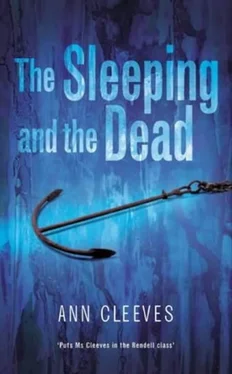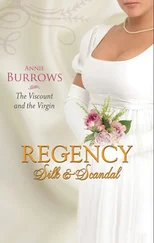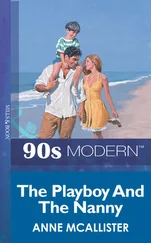‘What about having a shot at tracing the boy’s father? I don’t mean camping out on his doorstep. Just finding out where he is.’
‘How would you go about that?’
‘Through the records office, the archives of the local paper. There may have been a death notice when Maria died, an address. If the Brices said Michael was going to meet his father just before he died I’d say Crispin Randle makes an adequate suspect. If we hand him to Porteous on a plate it’ll give him someone else to harass.’
‘Why would he kill his own son?’
‘Why would he desert him? We’ll have to find out.’ He was like an overenthusiastic boy. Michael was a stranger to him. A puzzle to be untangled. He must have sensed her reservation, her distaste. ‘God,’ he said. ‘What an insensitive git. Look, I’ll clear out and leave it to the police.’
‘No,’ she said. He must have known she would give in eventually. ‘You play detective. If it makes you happy.’
Rosie spent the day looking for Mel in some of the places she could be lying low. There were days when Mel couldn’t face the Prom. Then she’d turn her back on her friends and Frank’s teasing and she’d go walkabout. Usually she wanted to be on her own but sometimes on the trawls around town she’d take Rosie with her. She didn’t speak much. She just waited for Rosie to follow her round the arcades, the sleazy snack bars, the tiny back-street pubs where a couple of pensioners sat all evening in silence. Everywhere people seemed to know her. Rosie stuck with her because in that mood Mel frightened her.
Rosie went first to the snack bar next to the bus station. A Formica shelf ran shoulder-high around the room and there were tall stools bolted to the floor. A water heater steamed behind a counter. The windows ran with condensation. There was a smell of frying bacon, which made her want to throw up.
A pimply youth was wiping tables with a grey cloth.
‘Hey, Robbie. Seen Mel?’
Robbie was one of Mel’s admirers. She had them everywhere, picked them up. Robbie was from Edinburgh, had run away from a loutish stepfather and lived now in a hostel run by a children’s charity. Rosie had never talked to him about any of this but Mel had told her. Robbie was passionately in love with Mel. You could tell by the way that he blushed whenever she spoke to him. Mel encouraged him. He was into Idlewild and they’d talk about album tracks, Mel strumming an imaginary guitar, the boy banging out a rhythm on a tabletop until the manager came out from the back to shout at him.
‘No.’ He squirted cleaner from a spray, turned his back to her. He could be lying. If Mel had asked him to, he’d lie.
‘Her parents are worried about her. They’re talking about getting in the police.’
He faced her. ‘Really. I haven’t seen her for ages.’ He seemed scared, but perhaps that was the talk of the police.
‘If you see her, tell her to get in touch. With me or Joe if she’s not up to going home.’
He nodded. His face was blank. Years of practice at not letting on what was going on in his head.
The amusement arcade was next to the funfair, old fashioned in the same sort of way. It was decorated in red and gilt and a cashier sat in a booth in the entrance. Mel said the booth reminded her of one of the windows in Amsterdam where a prostitute would sit. Carol, the cashier, wasn’t one of Mel’s admirers and the hostility was mutual. Mel went to the arcade to play the machines, not to chat. Carol was a middle-aged, once-upon-a-time blonde, a single mum. She was outraged by the money Mel lost; enough, she’d say, to feed her kids for a week. Mel didn’t taken kindly to the lectures. She played the machines as if nothing else mattered, completely focused on the patterns which spun before her. The money was irrelevant. Sometimes she left her winnings in the tray and had to be reminded to go back for them.
On rainy days the arcade was packed. Today there was a middle-aged couple playing on the penny scoop and a few teenage lads bunking off school. Carol waved to Rosie. She got bored out of her mind imprisoned in her booth and she wanted the company. She’d keep you talking all day given the chance.
‘Mad Mel not with you then?’
‘No. I was wondering if she’d been in.’
‘I’ve not seen her since she went away on holiday. Portugal, was it? Did she have a good time?’
‘She didn’t go in the end.’ Rosie inched her way towards the door. She couldn’t face explanations.
Carol seemed to realize she’d not get much more from the conversation and picked up a copy of Hello ! magazine from a shelf under her desk. She began to flick over the pages. Her nails were sugar pink. She looked up once more to flutter the nails in Rosie’s direction to wave goodbye.
It was early afternoon. Joe would still be sleeping. Rosie tried a couple of pubs without much hope. There was one in a back street, near the health centre, run by an ex-jockey, a little wizened old man with no teeth. Another of Mel’s fans. The bar was full of men studying form in the racing pages. Rosie had never been able to understand why Mel went in the place. She had become a sort of mascot. She sat at the bar on a wooden stool and the punters asked her advice, though she admitted she knew nothing about horses or racing. Today her stool was empty.
‘She needs looking after,’ said the landlord sentimentally when Rosie explained that Mel had gone missing. ‘Proper loving care.’
Rosie thought secretly that Mel had been loved too much, spoilt rotten at least. But she kept that opinion to herself.
She walked down the steep hill from the health centre towards the sea front. Terraces of pastel-painted guest-houses ran away from the road. In the windows were signs saying ‘Vacancies’ and ‘Contractors welcome’. On the corner was the hostel where Robbie lived. A young woman was hanging sheets out on the washing line. Rosie thought Mel could hide herself away in this town for months if she wanted to. The Gillespies would make sure there was money in her bank account. Eleanor obviously wanted her found, but Rosie thought Richard wouldn’t pry too much as long as he knew she was safe and she didn’t cause a fuss which could be picked up by the press. At the sea front Rosie crossed the road and went down to the level of the beach. The traffic became a distant hum above her.
The Rainbow’s End was a café, two arches cut out of the bank of the promenade. It was run by middle-aged drop-outs selling organic food and herbal teas and it was one of Melanie’s favourite haunts. She said it was like a cave. She would sit near the counter, as far away as possible from the natural light, her back turned to the sea. She’d drink decaffeinated coffee and smoke roll-up after roll-up although there was a big sign saying NO SMOKING. Maura, who ran the place, turned a blind eye. Another example of one rule for Mel and another for the rest of the world. In the Rainbow’s End, Mel was drawn to the food. Sometimes she’d buy a slab of carrot cake. She’d sit and look at it, a paper napkin folded on her lap, but she’d never eat. In the end she’d push the plate across the table towards Rosie.
‘I don’t feel hungry. You have it.’
Rosie was always hungry but she didn’t know what to do for the best so the cake would sit there, the cream-cheese topping slowly melting, until they left.
Maura was a big woman, an earth mother in an Indian-print caftan and beads woven into her hair. She looked out for Mel. If the café was quiet – which it usually was – she’d sit with her and talk earnestly about the things which would ‘get her head straight’. Things like plant remedies, hypnosis, acupuncture. Mel would listen with a bored expression on her face. So far as Rosie knew she never followed up any of the suggestions.
Читать дальше












